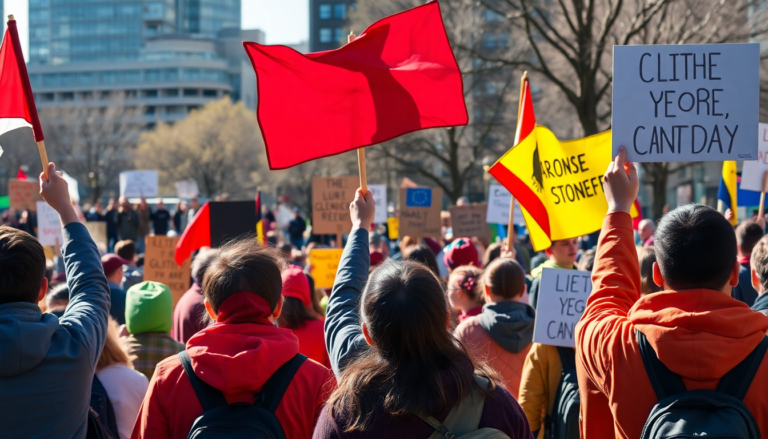Argomenti trattati
Recently, Seattle has found itself at the center of intense social conflict, as a series of events surrounding anti-LGBTQ+ sentiments sparked protests, counterprotests, and a significant law enforcement presence. The backdrop of these confrontations was the Mayday USA event, which drew both supporters and detractors, illuminating the ongoing struggle over rights, identity, and community values.
Understanding the Mayday USA event
On May 24, 2025, the Mayday USA event unfolded in Cal Anderson Park, a site rich in LGBTQ+ history. This gathering, part of a five-city tour led by evangelical Christian speakers, focused on anti-trans and anti-abortion messages. The choice of location was particularly provocative, as Cal Anderson Park is named after the first openly gay member of the Washington State Legislature, and is seen as a sacred space for many in the LGBTQ+ community. The event’s title, ‘Don’t Mess With Our Kids,’ echoed sentiments that have fueled debates about gender identity and parental rights across the nation.
The city initially denied the group’s request to hold the event downtown, citing safety concerns and the need to ensure public access. After being redirected to Cal Anderson Park, the event received the necessary permits, leading to an anticipated clash between supporters and counterprotesters.
Counterprotests and community response
The counterprotest, branded as ‘Keep Your Bibles Off Our Bodies,’ mobilized a significant number of individuals who opposed the Mayday USA message. This response underscores the deep divisions within the community regarding issues of gender and rights. Tensions escalated on the day of the event, with police reporting that counterprotesters threw objects at officers and attendees of the Mayday USA gathering. The law enforcement’s response was swift, resulting in 23 arrests amidst accusations of excessive force.
Mayor Bruce Harrell condemned the Mayday USA event, stating that it was designed to provoke the LGBTQ+ community by promoting beliefs contrary to Seattle’s values of inclusivity. His remarks highlighted a critical aspect of the situation: the balance between free speech rights and the potential for harm to marginalized communities. Following his statement, Mayday USA organizers held a second rally, demanding an apology from the mayor and accusing him of infringing on their religious liberties.
The broader implications of the events
The escalation of these events has prompted city officials, LGBTQ+ advocates, and political candidates to question the permitting processes and the role of law enforcement in managing such gatherings. Councilmember Alexis Mercedes Rinck labeled the organizers as ‘far-right, anti-trans extremists,’ emphasizing the need for accountability and protective measures for vulnerable populations. The Seattle LGBTQ+ Commission echoed these sentiments, calling for a thorough investigation into the police response during the protests.
Legally, Seattle cannot prohibit events based solely on their ideological content, a principle firmly rooted in the First Amendment. However, the city does have the authority to impose conditions on permits to ensure public safety. This raises complex questions about how to manage events that have the potential to incite violence or harm, particularly in spaces that hold historical significance for marginalized communities.
Future considerations and community dialogue
The unfolding situation in Seattle is not just about one event; it reflects broader national conversations about race, gender, and the safety of public spaces. As we look ahead, the challenge remains in balancing the rights of individuals to express their beliefs while safeguarding the well-being of the community. Legal experts suggest that cities can implement ‘reasonable time, place, and manner restrictions’ to ensure public safety without infringing on First Amendment rights.
This ongoing dialogue is crucial. With another evangelical group planning a similar event in the same park later in the summer, community leaders and activists are already mobilizing to advocate for a more inclusive approach—one that respects both free speech and the rights of vulnerable populations. As Seattle navigates these complex issues, it will be essential to foster dialogue that prioritizes understanding and respect among diverse community members.

